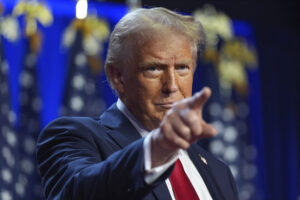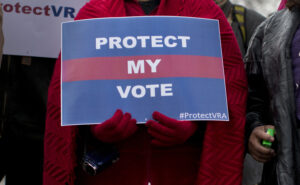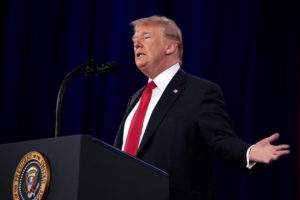Inappropriate Government Watchlisting Threatens Innocent Lives
"A single, uncorroborated source of information -- including a Facebook or Twitter post" -- is enough to put innocent foreigners and Americans on a watchlist of "known" and "suspected" terrorists shared with foreign and domestic agencies as well as private contractors, ACLU legislative counsel Arjun Sethi writes at The Guardian on Saturday.
“A single, uncorroborated source of information — including a Facebook or Twitter post” — is enough to put innocent foreigners and Americans on a watchlist of “known” and “suspected” terrorists shared with foreign and domestic agencies as well as private contractors, ACLU legislative counsel Arjun Sethi writes at The Guardian on Saturday.
Roughly 40 percent of the 680,000 people on the FBI master list have “no recognized terrorist group affiliation,” continues Sethi, quoting an article published by The Intercept. Though those people have no connection to a designated terrorist group, the government still instructs its employees and everyone else with access to the list to regard them as suspected terrorists.
Those numbers are largely the result of the loose standard used by the government — so-called reasonable suspicion — to determine who can be watchlisted, Sethi writes. The designation requires neither “concrete evidence” nor “irrefutable evidence.” Officials are simply permitted to make the judgment on the basis of their experience. Courts have held that “avoiding eye contact with an officer, traveling alone, and traveling late at night … all amount to reasonable suspicion,” Sethi notes.
What results is a circular logic in which individuals can be flagged “if they are suspected of being suspected terrorists.”
Sethi continues:
The government’s self-mandated surveillance guidance also includes loopholes that permit watchlisting without even showing reasonable suspicion. For example, non-citizens can be watchlisted for being associated with a watchlisted person — even if their relationship with that person is entirely innocuous. Another catch-all exception allows non-citizens to be watchlisted, so long as a source or tipster describes the person as an “extremist”, a “militant”, or in similar terms, and the “context suggests a nexus to terrorism”. The FBI’s definition of “nexus”, in turn, is far more nebulous than they’re letting on.
Because the watchlist designation process is secret, there’s no way of knowing just how many innocent people are added to the list due to these absurdities and loopholes. And yet, history shows that innocent people are inevitably added to the list and suffer life-altering consequences. Life on the master watchlist can trigger enhanced screening at borders and airports; being on the No Fly List, which is a subset of the larger terrorist watchlist, can prevent airline travel altogether. The watchlist can separate family members for months or years, isolate individuals from friends and associates, and ruin employment prospects.
Being branded a terrorism suspect also has far-reaching privacy implications. The watchlist is widely accessible, and government officials routinely collect the biometric data of watchlisted individuals, including their fingerprints and DNA strands. Law enforcement has likewise been directed to gather any and all available evidence when encountering watchlisted individuals, including receipts, business cards, health information and bank statements.
A watchlist bursting with innocent people distracts officials from genuine threats, Sethi concludes. It creates unnecessary stigmas, alienates people from law enforcement, and threatens constitutional rights to travel freely and enjoy liberty and due process of the law.
“You can’t help but wonder,” he asks, “are you already on the watchlist?
— Posted by Alexander Reed Kelly
Your support matters…Independent journalism is under threat and overshadowed by heavily funded mainstream media.
You can help level the playing field. Become a member.
Your tax-deductible contribution keeps us digging beneath the headlines to give you thought-provoking, investigative reporting and analysis that unearths what's really happening- without compromise.
Give today to support our courageous, independent journalists.








You need to be a supporter to comment.
There are currently no responses to this article.
Be the first to respond.